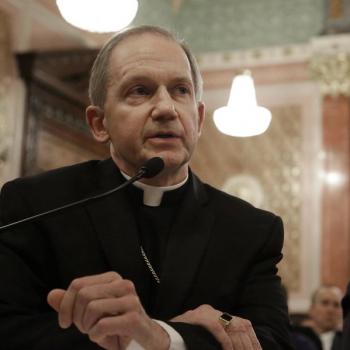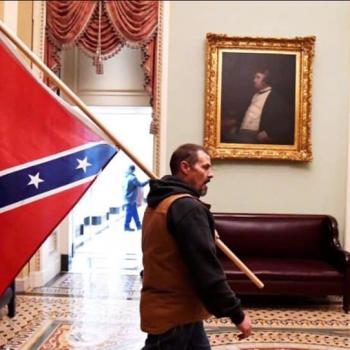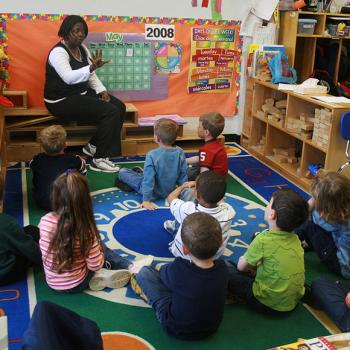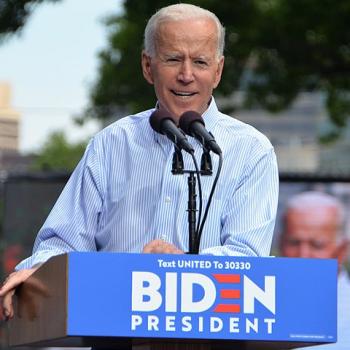 “Lord, who is my neighbor?” This is a thornier question than it appears on the surface, and Jesus’ answer is just as unsettling. Exhibit A: gay marriage and its opponents.
“Lord, who is my neighbor?” This is a thornier question than it appears on the surface, and Jesus’ answer is just as unsettling. Exhibit A: gay marriage and its opponents.
Monday, the Supreme Court ruled in favor of the Colorado baker who in 2012 refused to bake a wedding cake for a gay couple. It was what the court calls a “narrow decision,” meaning not that it was a close vote (it was 7-2), but that the High Court decided on narrow grounds that apply only to this case.
In 2012, David Mullins and Charlie Craig walked into Masterpiece Cakeshop in Lakewood, Colorado, to order a cake for their wedding reception. They were getting married in Massachusetts, but the reception was to be in Colorado, which did not at the time recognize same-sex marriages. But owner Jack Phillips refused service on religious grounds. Mr. Mullins and Mr. Craig filed a complaint with Colorado’s Civil Rights Commission, which ruled in their favor.
Mr. Phillips appealed, and the case made its way through the state courts and the federal appeals courts, eventually getting to the Supreme Court. Throughout the appeals, Mr. Phillips also argued that being forced to bake a cake for a same-sex wedding was a violation of his free speech rights, in addition to his freedom of religion.
You can review the details of the case in the New York Times article linked above, and also here and here. But basically, Justice Anthony Kennedy’s majority opinion, issued Monday, barely touched on the free speech argument. Instead, Justice Kennedy, joined by six other justices, wrote that the decision was not about all the things that the gay lobby wanted it to be about. It was not about whether the baker’s free-speech was hampered. It was not about whether his right to freedom of religion trumped the couple’s right to equal treatment.
No, the opinion was about the anti-religion bias of the civil rights commission, especially by one member, who said, “freedom of religion and religion has been used to justify all kinds of discrimination throughout history, whether it be slavery, whether it be the Holocaust.”
This, Justice Kennedy wrote, “is inappropriate for a commission charged with the solemn responsibility of fair and neutral enforcement of Colorado’s anti-discrimination law.”
That Justice Kennedy wrote the majority opinion is significant. He wrote Obergefell v. Hodges, which established gay marriage in constitutional law in 2015. In fact, the New York Times reports, “Justice Kennedy has written every major Supreme Court decision protecting gay men and lesbians.” But he could not ignore the “inappropriate and dismissive comments” from the civil rights commission toward Mr. Phillips.
But for this clear lack of impartiality by the civil rights commission, Masterpiece Cakeshop v. Colorado Civil Rights Commission might have been a precedent-setting ruling in Mr. Mullins’ and Mr. Craig’s favor. Instead the court ruled in favor of Mr. Phillips – who is now free to refuse service to anyone – while setting no precedent.
This is not over. Similar cases are working their way through the appeals courts, and when one lands in the High Court’s docket, unencumbered by the distraction of bias by a lower court or a civil rights commission, there may well be a different outcome: one that establishes a precedent.
A Broader Issue
Meanwhile, I want to address a broader issue. There is more going on here than mere rights under the First Amendment. In light of what Jesus calls the second greatest commandment of the law, “You shall love your neighbor as yourself,” I think we can do better. And we can especially do better than to couch our objections to providing a goods and services to a same-sex wedding in Enlightenment-based arguments about rights.
In a secular, diverse, pluralistic society such as ours, a person whose business is a public accommodation cannot expect to be allowed to use freedom of religion as an excuse refuse service to people. America is not a theocracy, and Catholics who try to impose Church teaching on our secular society seek to make it so, whether they realize it or not.
A baker does not endorse anything by baking a cake. He is simply baking a cake: a mixture of eggs, flour, milk, sugar, and oil. A cake is not Holy Communion. It isn’t even for the wedding ceremony itself. It is for the party afterward. It’s food.
Also, I have to ask: does a baker inquire into the morals of the straight couples he bakes cakes for? Does he ask them whether this is for their second, third, or fourth marriage? And since neither a wedding nor God are exclusively about sexual morals, does a baker inquire whether a straight couple are gossips or loan-sharks, or billionaires who steal their workers’ wages? If not, he has no business making an issue of his clients’ sexual orientation.
No matter how much a baker may think he’s witnessing for Jesus by refusing service to a same-sex couple, he isn’t converting a single soul. On the contrary, he will do nothing but engender hatred for Jesus and his Holy Gospel, scandalizing and alienating those whom God has brought to us so that we may be Christ to them. We do not have to like the idea of same-sex unions, but we have no right to turn our backs on LGBTQ people by refusing them service, including for a same-sex wedding. “You shall love your neighbor as yourself.” And to borrow from the Sermon on the Mount, if a gay couple demands of you a cake, bake them two. How much more do we live and reveal the Gospel by doing this, rather than by wrapping ourselves in the First Amendment? Who are we to think we may refuse this duty?
In response to Jesus’ commandment to love our neighbor as ourselves, a lawyer asked, “Lord, who is my neighbor?” Jesus gave him no comfort, answering with the parable of the Good Samaritan. Then he asked the lawyer, “Which of these, thinkest thou, proved himself a neighbour to the man who had fallen in with robbers?”
The lawyer answered: “He that showed mercy.” Jesus then told him, “Go thy way, and do thou likewise.”
Our neighbor is everyone God puts in our path, with no exceptions.












